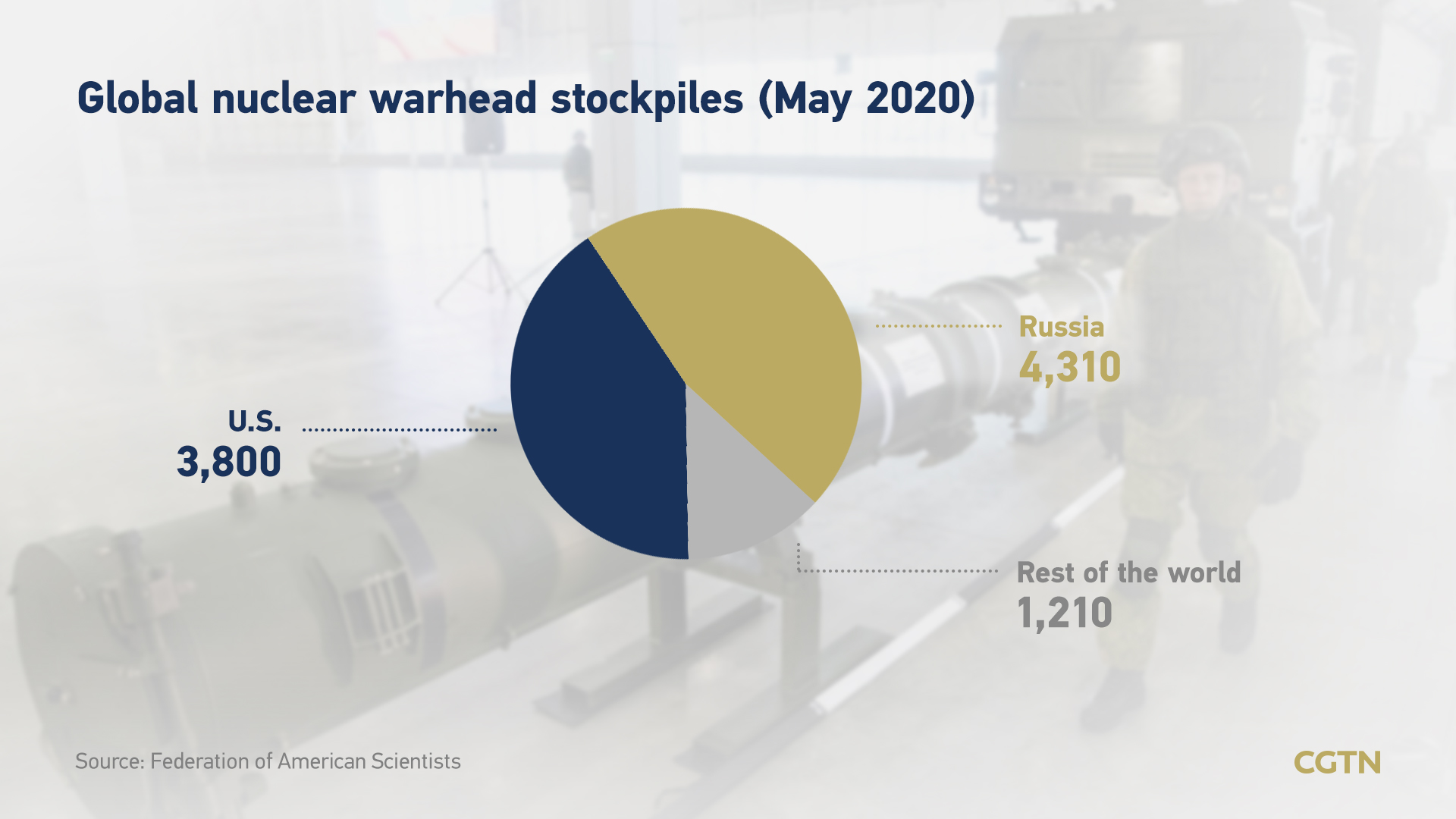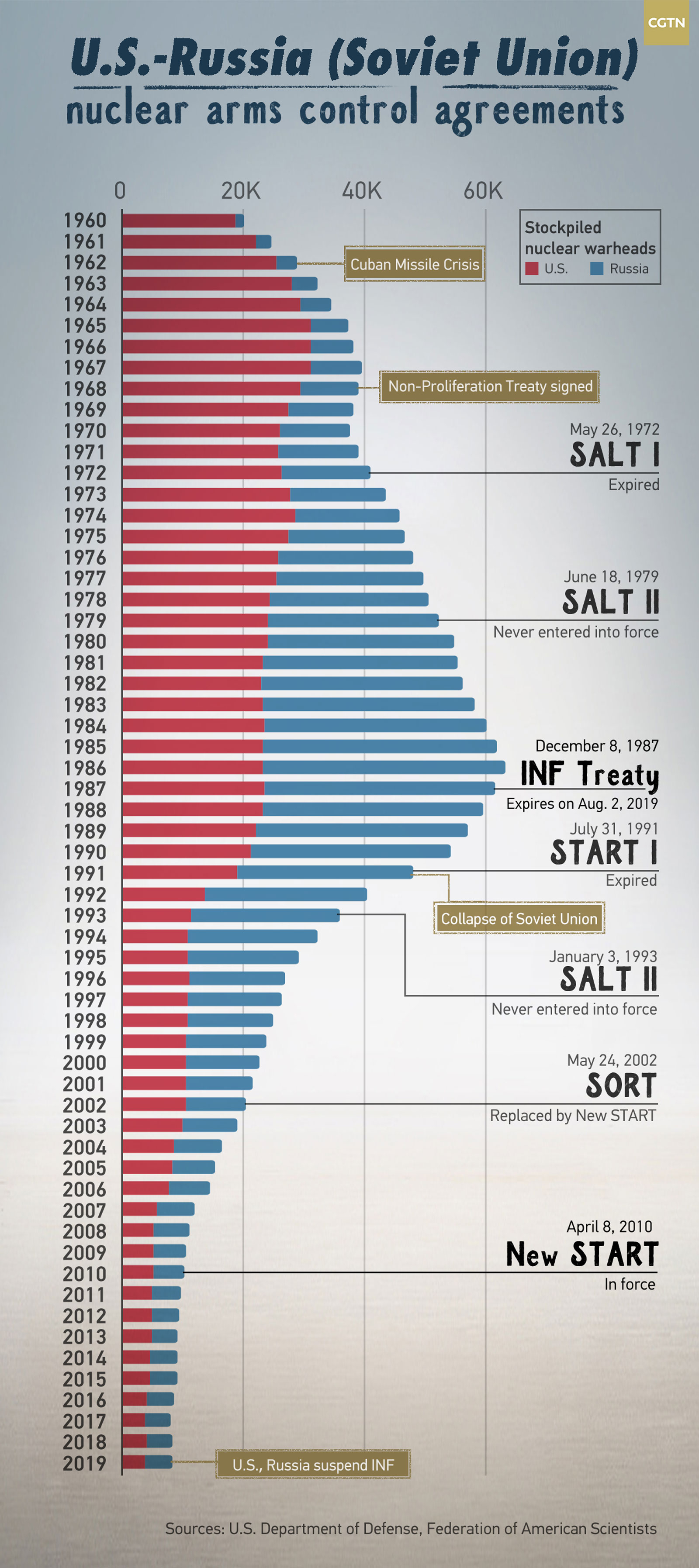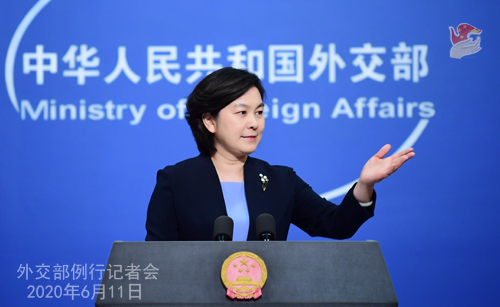The United States and Russia have agreed to start arms control talks on Monday as the only remaining treaty between the two largest nuclear powers will expire in less than a year.
U.S. Special Envoy for Arms Control Marshall Billingslea is set to meet Russian Deputy Foreign Minister Sergei Ryabkov in Vienna and hold talks on the New Strategic Arms Reduction Treaty (START), which is poised to expire on February 5.
The U.S. and Russia have about 91 percent of the world's nuclear warheads, according to the Federation of American Scientists. The U.S. has 3,800 in its stockpile and Russia 4,310.

New START is the only U.S.-Russia arms control pact still in effect after both Moscow and Washington withdrew last year from the 1987 Intermediate-range Nuclear Forces Treaty. If the treaty lapsed, there would be no legal restrictions on U.S. and Russian nuclear weapons for the first time in nearly half a century.
What's in New START? Has it worked?
The New START treaty, signed in 2010 by U.S. President Barack Obama and Russian President Dmitry Medvedev, limits each country to no more than 1,550 deployed nuclear warheads and 700 deployed missiles and bombers.
Measures under the treaty include on-site inspections and exhibitions, data exchanges and notifications related to strategic offensive arms and facilities covered by the treaty, and provisions to facilitate the use of national technical means for treaty monitoring.
The treaty entered into force on February 5, 2011, and will expire in 2021.
The pact has played its role in limiting the number of weapons deployed by the U.S. and Russia and strengthening the strategic communication and mutual trust between the two countries.

The New START Treaty brought the deployed arsenals of the U.S. and Russia to their lowest level since the 1960s.
To date, the two sides have exchanged over 10,000 notifications of movement of delivery systems and have conducted dozens of on-site verification inspections on each other's territory, according to the Arms Control Association, a U.S. nonpartisan membership organization dedicated to promoting public understanding of and support for effective arms control and nuclear nonproliferation policies.
Teetering fate of the treaty
While Russia has shown interest in renewing the pact, U.S. President Donald Trump who has previously called it a "bad deal" seemed to have been reluctant and insisting on China's participation in trilateral talks.
Moscow has signaled readiness to include some of its latest nuclear weapons in the New START Treaty if the U.S. agrees to extend the agreement.
Those weapons include the Burevestnik nuclear-powered cruise missile and the atomic-powered and nuclear-armed Poseidon underwater drone, described as capable of creating a tsunami to slam an enemy coastline.
Daryl Kimball, the executive director of the Arms Control Association, told CNN that the U.S. and Russia meeting to discuss nuclear arms control matters is "good, but this is no reason to celebrate because the Trump administration's position seems to remain the same."
"They're refusing to pick up Russia's offer to extend New START," he said. "They appear to be still demanding new agreements that can't be negotiated before New START expires, not only with Russia, but with China. So, I'm not jumping up and down for joy."
China: No intention to join
China has reiterated many times that it has no intention to join the so-called China-U.S.-Russia trilateral arms control negotiations and this position is "clear and consistent."
"As is known to all, China's nuclear power is not on the same order of magnitude as that of the United States and Russia. It is not yet the right timing for China to participate in nuclear disarmament talks," Foreign Ministry spokesperson Hua Chunying said on June 11, adding that owners of the largest nuclear arsenals have special and primary responsibilities in nuclear disarmament.

Chinese Foreign Ministry spokesperson Hua Chunying attends a regular press briefing in Beijing, June 11, 2020. /Chinese Foreign Ministry
Chinese Foreign Ministry spokesperson Hua Chunying attends a regular press briefing in Beijing, June 11, 2020. /Chinese Foreign Ministry
Considering the current circumstances, Hua said the U.S. should respond positively to Russia's call to extend the New START Treaty and further drastically reduce its nuclear arms stockpile, creating conditions for other nuclear-weapon states to join in multilateral nuclear disarmament talks.
"Not participating in trilateral talks does not mean China will be absent in the global efforts on nuclear disarmament," Hua said, noting that China has been actively calling on the Conference on Disarmament and the P5 mechanism for substantive steps to reduce risks of nuclear war and uphold global strategic stability.
'Bleak' arms control outlook
Researchers said in a report published on June 15 that the outlook for arms control was "bleak" and warned of a new round of a nuclear arms race.
"The loss of key channels of communication between Russia and the USA... could potentially lead to a new nuclear arms race," said Shannon Kile, director of the nuclear arms control program at the Stockholm International Peace Research Institute (SIPRI) and co-author of the report, referring to the future of the New START.
But U.S. and Russia "have extensive and expensive programmes under way to replace and modernise their nuclear warheads, missile and aircraft delivery systems, and nuclear weapon production facilities," said the report.
"Both countries have also given new or expanded roles to nuclear weapons in their military plans and doctrines, which marks a significant reversal of the post-Cold War trend towards the gradual marginalization of nuclear weapons."